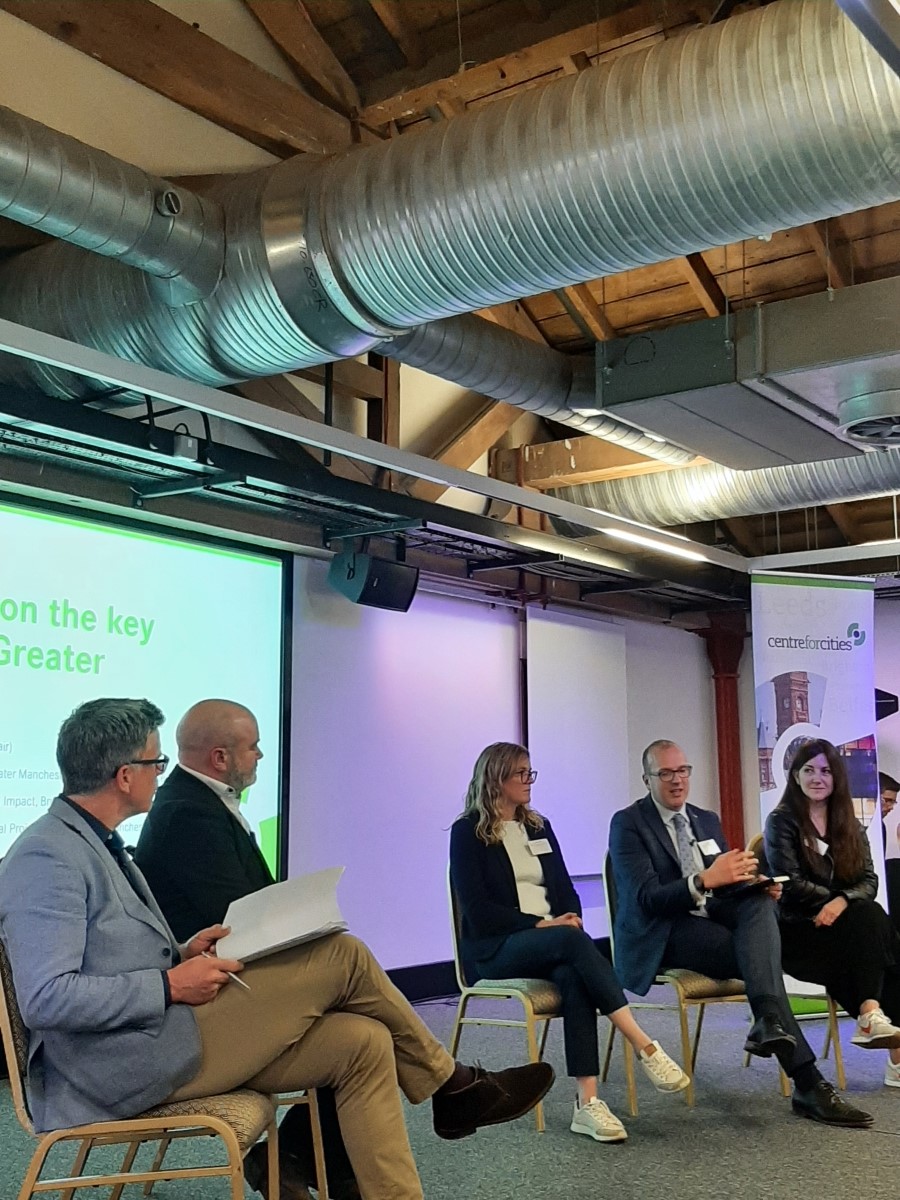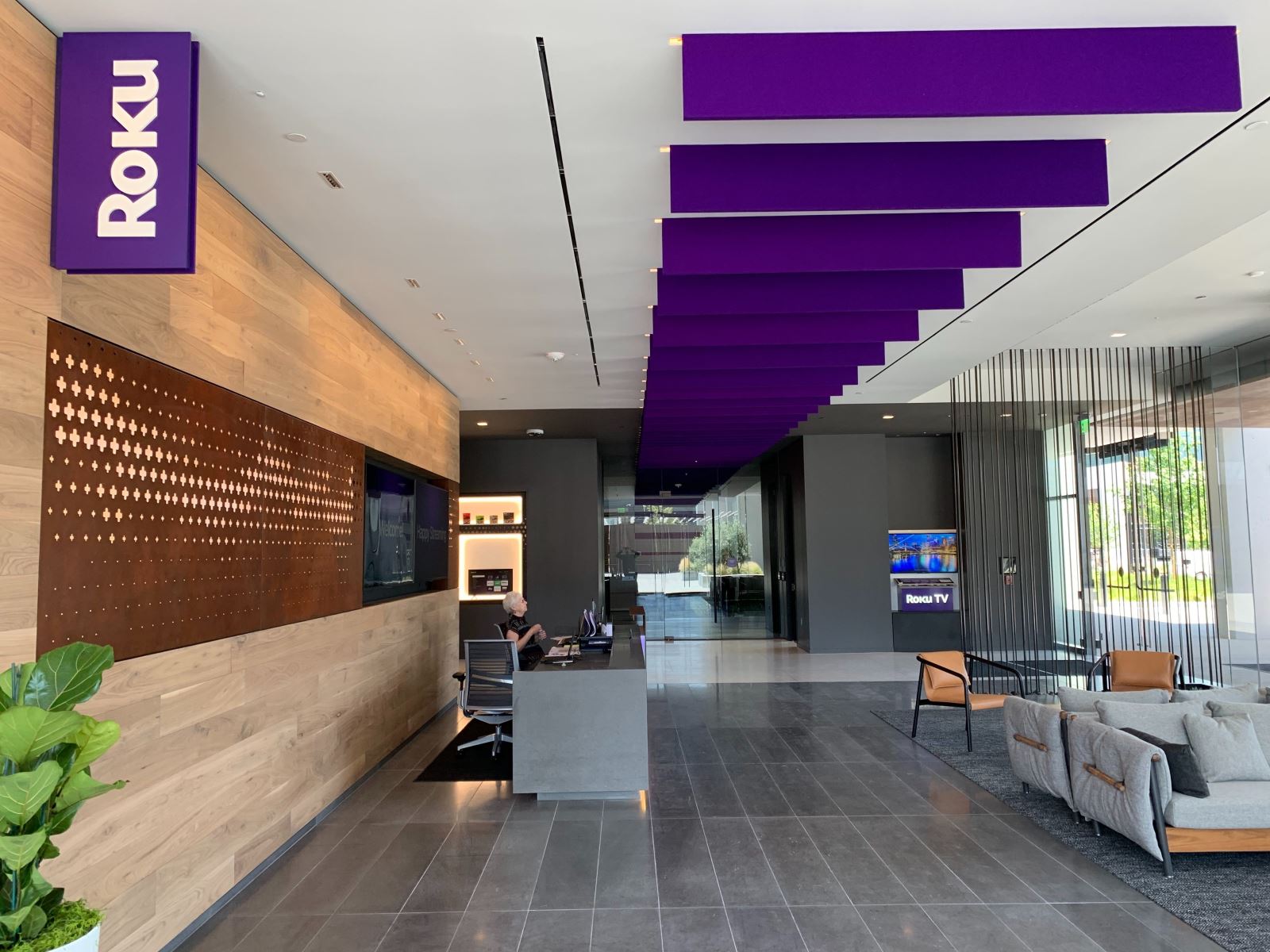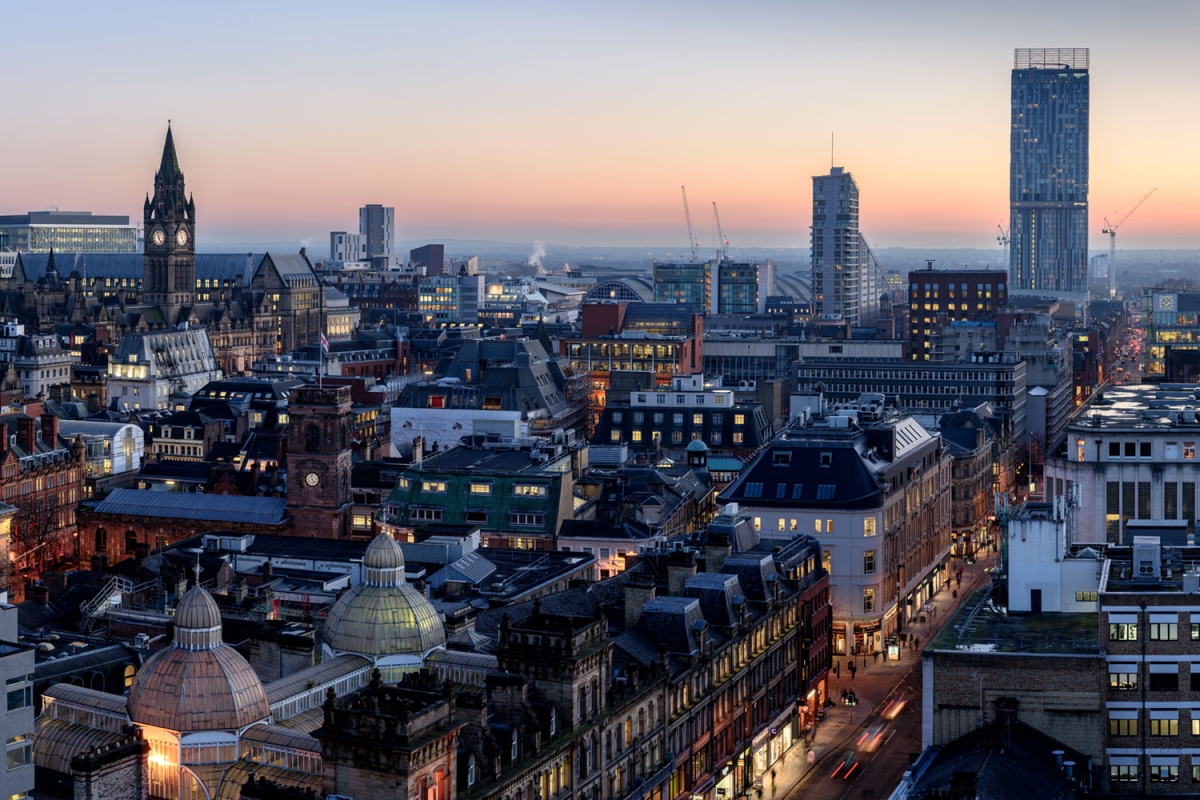Insights
Leaders explore Levelling Up Programme and what it means for Greater Manchester’s local economic growth
Members of The Greater Manchester Local Enterprise Partnership (GM LEP), Chair Lou Cordwell and Mayor Andy Burnham, joined former Prime Minister Gordon Brown to discuss what the levelling up programme actually means for the region’s economic growth.
The half-day conference, “Realising Regional Growth: What next for Greater Manchester?” was hosted by the Centre for Cities on Wednesday 27 April at The Science and Industry Museum.
As a response to the recently published Levelling Up White Paper, the conference brought together national and regional politicians, academics, and business leaders to discuss how Greater Manchester can build upon existing strengths and new opportunities to maximise growth.
The Levelling Up White Paper outlined plans for all regions to achieve productivity potential, support economic growth and improve living standards across the UK but with little clarity on how this could be achieved in reality.
Speakers at the event discussed the priority areas and sectors, enablers for growth, current barriers and plans for all aspects of Greater Manchester’s future economy.
The speakers and panellists at the event included:
- GM LEP Chair Lou Cordwell
- Mayor of Greater Manchester Andy Burnham
- The Rt Hon Gordon Brown, former Prime Minister of the United Kingdom
- Lord Sainsbury of Turville, former Minister for Science and Innovation
- Chris Fletcher, Director of Policy and Campaigns, Greater Manchester Chamber of Commerce
- Jessica Bowles, Director of Strategic Partnerships and Impact, Bruntwood
- John Holden, Associate Vice-President for Major Special Projects, The University of Manchester
The key talking points of the event were the devolution of power, investment, future skills, research and development and the core priority sectors of Greater Manchester including health innovation, advanced materials, cyber, tech and green innovation. Barriers to success included the skills shortage, further education, and transport across the region.
All speakers agreed that the frontier sectors and collaboration would give Greater Manchester the biggest economic growth and create higher-paid jobs across the region. Teamwork across scientific and entrepreneurial innovation will help Greater Manchester to establish itself as a prosperous city-region, attracting the best investment and talent.
However, this focus on the frontier economy will also benefit the foundational economy, creating jobs and a better quality of employment for those working in service industries and non-priority areas across the region.
Lou Cordwell, Chair of the Greater Manchester Local Enterprise Partnership stated:
“In Greater Manchester, we have a clear view of the kind of growth we want and that resonates with the kind of businesses and skills we want there. We now have that critical mass of innovative businesses in our core sectors. Some of the most sizable tech businesses now feel like they belong here. Skilled talent can now move here and comfortably move jobs.
“But we understand the wraparound which will enable our key sectors to thrive, for example, the role of Greater Manchester’s culture and the night-time economy in attracting tech businesses. We can’t let the key sectors overshadow the service sectors. We need to lift as a whole, there’s interconnectivity, not an exclusivity.”
Mayor of Greater Manchester Andy Burnham said:
“We have to be much more demanding for change coming out of the pandemic, good jobs for everybody and also attracting the highly skilled jobs in frontier sectors to lift ambition all the way up through the economy. There’s an entrepreneurial spirit in Greater Manchester and there always has been, but never at the expense of others.
“People want to work for businesses with a purpose in cities with a purpose. They want to work in a city that cares, but with a great nightlife and culture. All of this is important in building the regional economy.”
The Rt Hon Gordon Brown, former Prime Minister of the United Kingdom said:
“Manchester is proving that it works best when it works together. You can only build where there is genuine scientific, entrepreneurial innovation taking place. The growth areas in Greater Manchester clearly show it’s an economy that is ready for the future.”

Realising Regional Growth: What next for Greater Manchester?
North West Space Cluster will attract jobs and support mission to ‘level up’ the UK
A new report from a consortium led by the Science and Technology Facilities Council (STFC) reveals that the new space cluster for the North West will bring multiple, sustained economic benefits to the region.
The report, ‘A strategic case for the North West Space Cluster’, identifies that the formal establishment of the regional space cluster will:
- Generate jobs
- Create new skills
- Support new and growing businesses
- Attract commercial investment into the North West
- Inspire new research and innovation
The report comes as the UK Space Agency announces £600k boost to support the development of regional space clusters across the UK.
Levelling up the UK space industry
In collaboration with key local, regional and national organisations including all five authorities across the North West, STFC, based at the Daresbury Laboratory, at the national science and innovation campus, Sci-Tech Daresbury in the Liverpool City Region is championing this regional initiative alongside:
- Greater Manchester Combined Authority and Local Enterprise Partnership
- Liverpool City Region Combined Authority and Local Enterprise Partnership
- Cheshire and Warrington Local Enterprise Partnership
- Lancashire Local Enterprise Partnership
- Cumbria Local Enterprise Partnership
- Natural Environment Research Council (NERC)
- Engineering and Physical Sciences Research Council (EPSRC)
- Innovate UK
- The Innovation Caucus
- North West Aerospace Alliance
- Northern Space Consortium
- North West Business Leadership Team
- Square Kilometre Array Observatory Head Quarters, Jodrell Bank
Launching later this year, the cluster was set up in 2019 as part of a UK Space Agency project to create regional clusters outside of the ‘golden triangle’ of London, Oxford and Cambridge.
It aimed to study the viability of seven new regional clusters that could support the government’s mission to double its share of the global space market to 10% by 2030, and help level up the UK.
A place in the UK’s fastest growing industry
One of the UK’s fastest-growing industrial sectors, the UK space industry has trebled in size since 2010, generating an annual income of nearly £15bn.
A large proportion of this is in digital and advanced manufacturing, for which the North West has internationally recognised strengths that are second only to London and the South East. The report highlights the potential for these sectors to engage more with the space industry as a significant economic opportunity.
The report includes an independently commissioned review by PricewaterhouseCoopers (PWC). It identifies a large number of organisations, such as electronics and telecoms, which could pivot into the space sector to access new markets and customers. This is just one of several market opportunities for the North West highlighted by PWC.
Read the full report – ‘A strategic case for the North West Space Cluster’.
Setting a strategy
The newly published report also makes a number of key strategic recommendations to support the establishment of a dedicated space cluster for the North West. These include:
- To form a local leadership group to coordinate the growth of the North West space economy.
- Connect regional academic and business communities, within and across sectors.
- Define the potential for regional and national benefits relating to productivity, economic growth and job creation in the space sector
Where science meets business
The North West is home to a vast array of industrial strengths, from chemicals and textiles to nuclear energy and aerospace. It also hosts a remarkable concentration of academic institutions, with 13 world class universities and research institutes, such as the Square Kilometre Array Observatory headquarters at Jodrell Bank and the UK’s only supercomputing centre dedicated to supporting industry, STFC Hartree Centre at Sci-Tech Daresbury.
As part of the Sci-Tech Daresbury Campus, STFC’s Daresbury Laboratory continues to provide measurable and tangible benefits through support programmes and facilities for small businesses. Specifically linked to the space sector this support includes:
- The ESA Business Incubation Centre United Kingdom – the world’s largest business incubation programme for space tech start-ups, providing access, business support and funding for businesses that are using space technology to develop new products and services.
- ESA Business Applications Regional Ambassador Platform – helping businesses to access funding for the development of services, such as satellite positioning, connectivity, or imagery.
- Space Enterprise Lab (SEL) – Recently launched in partnership with the Space Applications Catapult, it is one of a national network of SELs across the UK set up to enable businesses to get involved and succeed in the space sector, regardless of their location in the UK.
Paul Vernon, Head of STFC’s Daresbury Laboratory, said:
“The formal establishment of the North West Space Cluster provides the North West with a long-term plan to play an increasingly significant role in the UK’s rapidly expanding multi-billion pound UK space sector.
“This is a fantastic time to be involved in the space industry, as it opens up a world of new opportunities for businesses, which in turn brings economic and societal benefits for our region. The establishment of the Cluster builds on STFC’s extensive experience in developing successful high-tech clusters, and I look forward to continuing to work closely with our collaborators as we prepare to officially launch the Cluster later this year.”
A series of workshops and information sessions will take over the coming months ahead of the launch of the cluster later in 2022. Further information about the North West Space Cluster, and how it can support businesses is available at the website.

Roku announces new office in heart of Manchester’s Oxford Road Corridor
Roku has announced the opening of its Manchester office in the heart of a new tech epicentre, off Oxford Road. Located in Bruntwood SciTech’s No.1 Circle Square, Roku’s Manchester team will now be recruiting for 50+ engineering roles before the end of 2022, as well as offering three-month paid internships to the region’s budding software engineers.
Manchester is Roku’s fourth UK office, following London, Cambridge and Cardiff. The strategic move to the northern tech capital positions Roku next to world-leading academic institutions, such as the University of Manchester, as well as a network of equally renowned digital innovators based in the Circle Square neighbourhood.
Investing in Manchester’s software expertise, the initial phase of recruitment will focus on product engineers who will work with Roku TV brand partners on developing Roku TV models, powered by the Roku OS, whilst continuing to innovate and lead the industry. Currently, Roku TV models are available in the UK from brands like TCL and Hisense, and in the U.S. Roku has been the No. 1 selling smart TV operating system for the last two years.
Roku will also be offering a three-month paid internship programme that has been designed for budding software engineers, with a background in computer science, to gain a foot on the career ladder. The program will be tailored to candidate’s skillset.
Roku is America’s No. 1 TV streaming platform by hours streamed (Hypothesis Group, October 2021). Roku’s platform serves more than 56 million active accounts worldwide as of Q3 2021, and was founded by CEO Anthony Wood, who was born in Manchester.
Alastair McGeoch, Director of Software Engineering, Roku said on the Manchester office opening:
“ Roku was founded on the belief that all TV will be streamed. We are looking for the right talent to continue to change how the world watches television. Manchester is a city steeped in engineering history and famed for its cultural impact on the world, so it is a natural fit for us. In Manchester, we will primarily focus on recruiting software engineering roles in 2022, with the ambition to increase the size of our team there in the next four years.
“ Manchester is Roku’s fourth UK office, following London, Cambridge and Cardiff and has an incredible talent pool. Roku is proud to be joining the city’s newest neighbourhood and growing tech sector. ”
Tim Newns, Chief Executive of MIDAS, Greater Manchester’s Inward Investment Agency said:
“ It is incredibly exciting to have one of the world’s leading content streaming technology companies investing at such scale in Manchester. They join a wider software supply chain around content streaming that includes the likes of BBC iPlayer and Disney Streaming Services (formerly Cake Solutions) which makes this a growing area of specialism for the city region and at a time of extreme growth in that sector globally.
“ We’re looking forward to seeing how Roku can leverage Greater Manchester’s innovation strengths in the technology and media sectors, alongside the existing ecosystem and academia, to take their product offering on to the next level. ”
For more information about the current job roles available at Roku, see the dedicated recruitment page here.

Roku Opens Fourth UK Office
Leaders from across the north of England’s visitor economy call for Government support for inbound travel recovery
Following the relaxation of travel rules for inbound international visitors, leaders from across the north of England’s visitor economy have written to the UK Government requesting support to restore the region’s high-spending international visitor markets and the investment opportunities that depend on direct flight connectivity.
A letter was sent to the Prime Minister’s office from GMLEP board member and IMAB Chair, Mike Blackburn with support from Manchester Airport Group and Greater Manchester’s Tourism International Emergency Response group. A second letter was also sent from leaders of the 11 Destination Management Organisations across the north of England’s visitor economy, addressed to Secretary of State for Transport, Grant Shapps MP and Secretary of State for Digital, Culture, Media and Sport, Nadine Dorries MP.
Both letters requested support to restore the region’s high-spending international visitor markets and the investment opportunities that depend on direct flight connectivity.
The north of England had 5.31 million inbound tourists in 2019, up 2.3% on 2018, creating a combined total expenditure of £2.63 billion, up 2.9% on the previous year. Furthermore, over the last decade, international connections into regional hubs including Manchester Airport, Liverpool John Lennon Airport, Newcastle International Airport and Leeds/Bradford Airport have grown significantly with new and expanded routes from Europe, the USA, China, and India.
However, international visitors to the north of England have barely returned to a fraction of 2019 levels, and after the introduction of pre-departure and PCR testing in November passenger numbers at airports such as those managed by Manchester Airports Group dropped by 13% week-on-week.
The removal of these restrictions, which takes effect from today (Friday 7 January), is expected to provide a boost to consumer confidence, and Northern DMOs are now asking for Government to recognise the impact of the remaining restrictions on the inbound travel sector and the knock-on effects for the wider visitor economies in destinations across the North. They also ask that Government:
- Use the January Review of the international travel framework to implement fundamental change and create and communicate a clear system and roadmap, so inbound passengers have the confidence to book international travel in advance.
- Provide support to promote that the UK is fully open for business and welcomes international visitors through all of its Gateways.
- Respond to the long-term damage that has been inflicted on the travel sector by providing direct, targeted support to recover our inbound markets through our Gateway airports, inbound travel operators and DMOs.
Mike Blackburn, GMLEP board member and IMAB chair, comments:
“As we welcome back customers to Greater Manchester, we must now focus on those vital markets that are still yet to return. Of particular concern are the inbound, high-spending international visitor markets and the investment in our city that depends on direct flight connectivity. Manchester is England’s second most visited city by international visitors. In 2019, 1.9million international visitors spent £850million in the Greater Manchester economy.
“We are missing a huge opportunity to fast track our economic recovery. Global competition is fierce, and we now face an up-hill battle to restore and grow our inbound visitor markets due to the impact of the pandemic; Brexit and associated negative perceptions.”
Sheona Southern, Managing Director at Marketing Manchester, comments:
“Every day that restrictions remain in place represents another dent in consumer and business confidence, along with damaging the long-term recovery of the inbound tourism market at what is a vital time of year for forward bookings.
“Tourism as a sector has doubled globally between 2010 and 2020, yet even in this period the UK tourism sector grew at a slower pace and has continued to lose market share, especially as competition from new destinations has increased with support from their respective Governments.
“Now, following the Covid-19 pandemic, the UK and destinations like Greater Manchester must act now to encouraging an uplift in international arrivals in 2022.”
Both letters highlight the example of China in terms of the importance of inbound markets. In the two years of direct inbound flights from Beijing to Manchester, the number of Chinese tourists to the north of England grew by 38%, with related spend within the visitor economy up by 120% in the same period. In addition, inbound tourists from USA to Manchester Airport increased on average 10% year on year from 2014 to 2019.
Karen Smart, Managing Director at Manchester Airport, adds:
“Manchester Airport is the global gateway to the North and the recovery of the aviation and inbound tourism sectors will underpin the wider economic recovery of our region.
“The relaxation of testing and isolation requirements for fully-vaccinated travellers is therefore very welcome. We are glad that Government has recognised that restrictions should not remain in place once they are no longer serving any purpose.
“We fully support calls from our region’s Destination Marketing Organisations to set out a framework for lifting the remaining restrictions, including testing on arrival, which will do a great deal to restore consumer confidence.”
One letter to the Government has been coordinated by Mike Blackburn chair of the Greater Manchester International & Marketing Advisory Board and co-signed by members of the Greater Manchester Tourism Industry Emergency Response Group and Marketing Manchester Premium Partners.
The other, has been coordinated by Marketing Manchester and co-signed by leaders from Welcome to Yorkshire, Marketing Cheshire, Cumbria Tourism, Marketing Peak District and Derbyshire, Marketing Lancashire, Visit County Durham, Visit Leeds, Make it York, Marketing Liverpool, Newcastle/Gateshead Initiative and Northumbria Tourism.
Manchester takes second place outside London in Levelling Up Power Tech League 2021
Manchester has been named in second place outside London in a new Levelling Up Power Tech League, according to analysis for the UK’s Digital Economy Council by Dealroom and the smarter job search engine Adzuna.
Narrowly beaten by Cambridge, tech jobs in Manchester increased by 164.6% in 2021.
The Levelling Up Power Tech League was created by gathering data for each city on venture capital (VC) funding, the number of VC rounds, the number of available jobs, the average salary, the number of Unicorns and the number of Futurecorns for each of the regions.
Manchester was ranked ahead of Oxford, Edinburgh, Bristol, Leeds, Birmingham, Newcastle, Cardiff and Belfast.
Matthew Scullion, CEO of Matillion, a tech business based in Manchester, said:
“These figures are evidence that high-growth start-ups are thriving all across the UK, and it’s no surprise to see Matillion’s home of Manchester appearing so highly. While the city has not always had the playbooks, flow of capital, or awareness that we can build unicorns, the data shows that’s changing and doing so rapidly. We’re very proud to have played our part in this upwards trajectory, as the region’s most recent (and only enterprise software) unicorn, and we hope we can play our part in making the flywheel spin even faster in over the coming years.”
But recruitment/retention challenge could impact growth, says one Manchester firm.
Ashley Ramrachia, co-founder of Academy, based in Manchester said:
“While acknowledging the huge achievements the UK tech sector has made, we also need to realise that difficulty recruiting and retaining talent could affect the success of an increasing number of scaling tech companies. That is why we urgently need to reinvent recruitment and development by putting diversity and inclusion at its heart.”
Full report is available here.

VIDEO: Greater Manchester convenes international mayors panel discussion at COP26
International mayors and city leaders shared their strategies for achieving net zero in a meeting convened by GM mayor and LEP board member Andy Burnham.
Global city leaders came together on the fringes of COP26 in November to discuss how they’re taking action to tackle the climate crisis, and to call on national governments for support to meet their ambitions.
The event was captured in a video.
‘From Industrial Cities to a Green Urban Revolution’, a panel discussion jointly hosted by Mayor of Greater Manchester Andy Burnham and Glasgow City Council Leader Cllr Susan Aitken, was held at the Glasgow City Chambers on the penultimate day of COP26.
City leaders from the UK, US, Australia, France, Spain and Finland spoke about how they are helping their nations to reach their carbon reduction targets by leading climate action and innovation. They also highlighted some of the pioneering actions taking place in their cities to accelerate decarbonisation and deliver on net zero ambitions.
Mayors and city leaders used the event to call on national governments around the world to work more closely with cities and local administrations to support innovation and drive change.
The panel discussion was chaired by David Miller of the C40 Cities group, a coalition of mayors taking action to confront the climate crisis, and supported by ICLEI – Local Governments for Sustainability (ICLEI).
